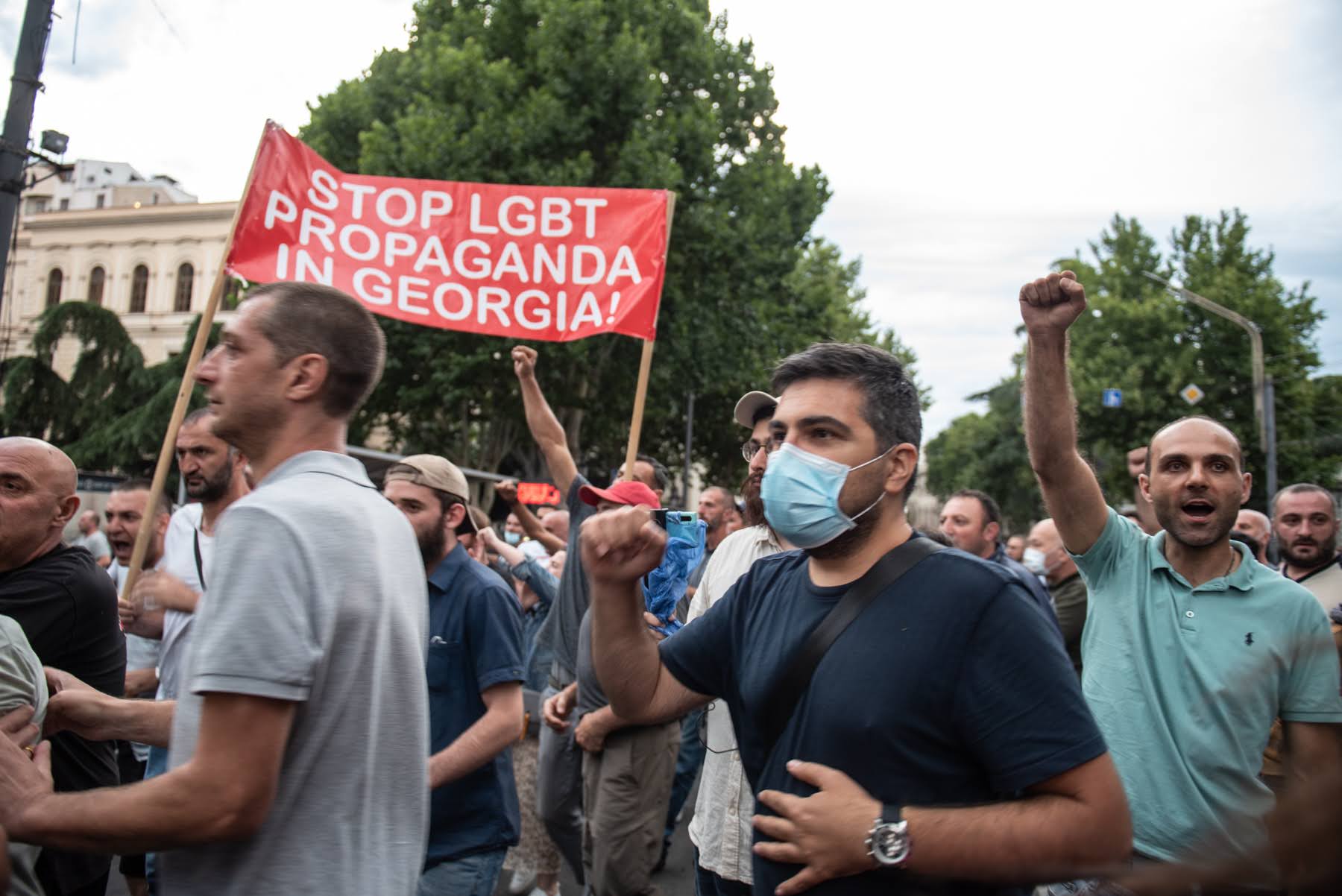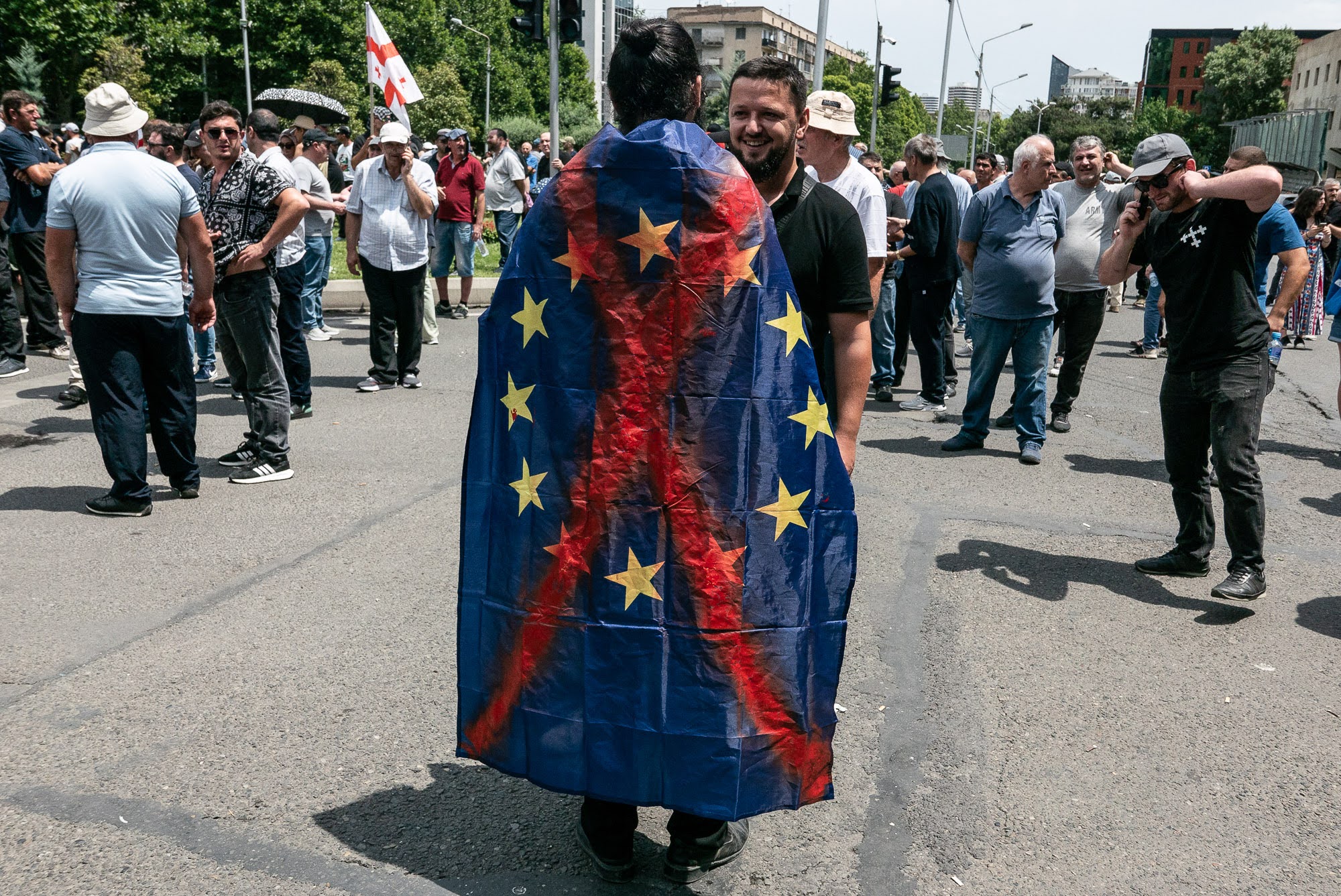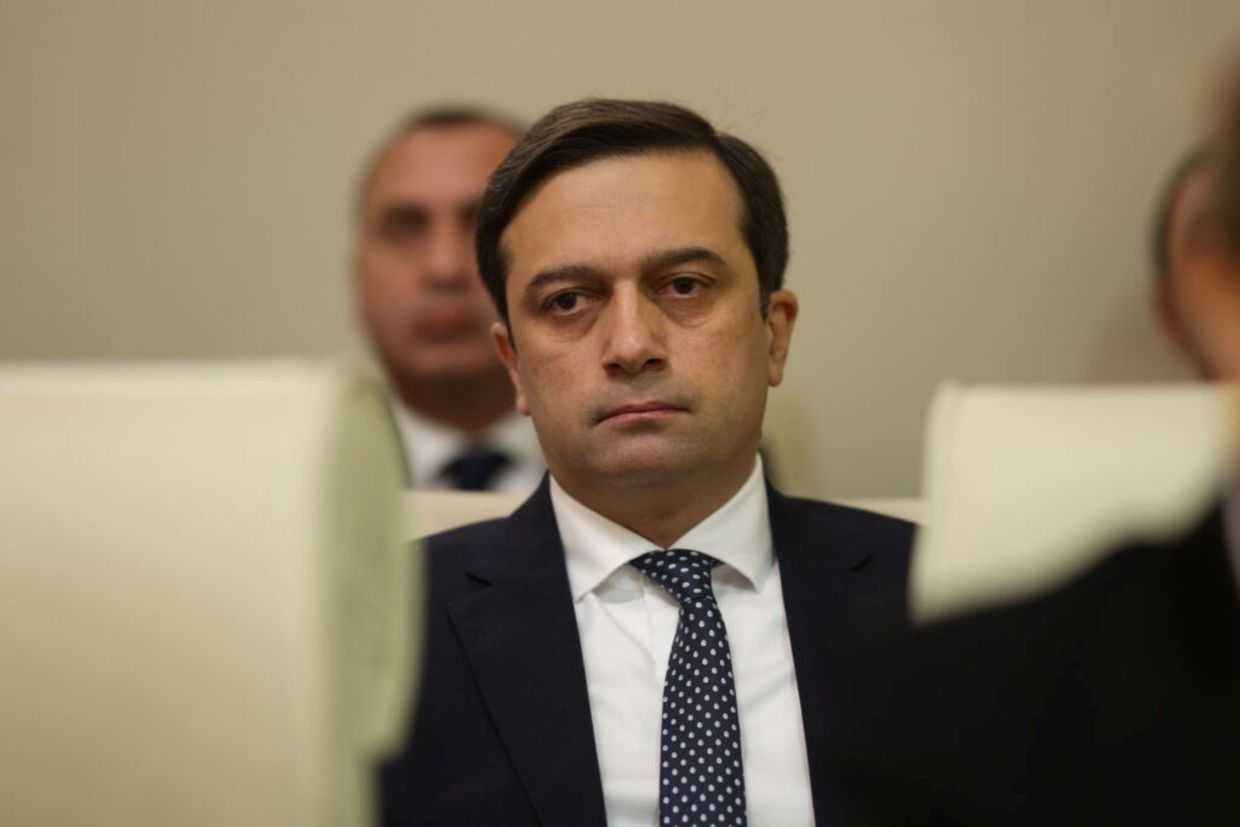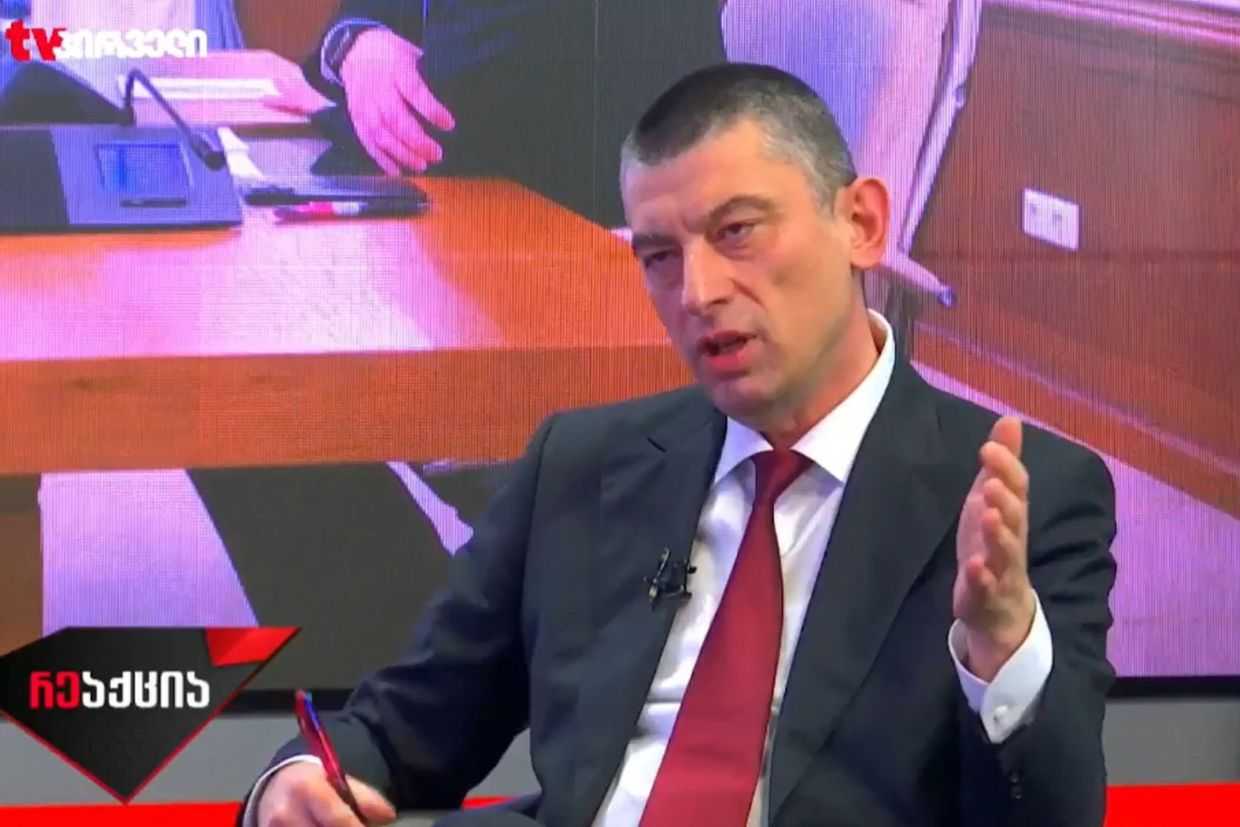Georgian Dream announces constitutional changes to outlaw queer ‘propaganda’ and gender transitioning

Georgia’s ruling party has announced sweeping amendments to the constitution that would outlaw what it terms queer ‘propaganda’, including banning public demonstrations or publications that it deemed to ‘popularise same-sex family or intimate relations’. The proposed changes would also ban gender transitioning.
The changes were outlined by Georgian Dream’s parliamentary leader, Mamuka Mdinaradze, at a press conference on Monday morning.
Georgia’s draft Constitutional Law on Family Values and Protection of Minors would ban any gathering, product, or educational programme which ‘popularises’:
- ‘Same-sex families or intimate relations’
- ‘Same-sex or non-heterosexual’ child adoption
- Gender transitioning
- The idea there are more than two genders
- Incest
The changes would also prohibit any medical assistance in gender transitioning or any legal gender recognition for transgender people.
The party said they planned to add a line to Article 30 of the constitution stating that ‘protection of family values and minors are ensured by Georgia’s constitutional law, which is an integral part of the Constitution of Georgia’. This would be a reference to the prospective constitutional law outlined above.
The ruling party currently holds only 82 of 150 seats in parliament, far short of the 113 needed to push through constitutional changes outright. If the changes were to be supported by at least 100 MPs, two-thirds of lawmakers, they could be approved by the next convocation of the parliament with another vote by 100 MPs.
During the press conference, Mdinaradze also suggested the party planned to introduce other related changes that would require a simple majority of 76 to pass.
Such changes could torpedo Georgia’s bid for EU membership. In their requirements for Georgia to advance its accession process, the EU Comission said the country needed to ‘move swiftly to strengthen the protection of human rights of vulnerable groups’. The Comission went on to call on the Georgian Government to ensure the right to freedom of assembly, citing their failure to prevent far-right groups from ransacking a planned Pride festival in 2023.
Georgian Dream’s proposals would likely outright ban pride events from being held.
Elections
The proposals, coming ahead of parliamentary elections scheduled for October, could represent the ruling party’s pitch to the country’s conservative electorate, as opinion polls suggest they could struggle to win a majority under the new fully proportional voting system.
During Monday’s press conference, Mdinaradze conceded that the party may not be able to secure the votes necessary to actually amend the constitution. He said the party had opted for constitutional changes as opposed to regular legislation because the party wanted ‘stronger guarantees’ that would be harder to reverse ‘if some pseudo-liberal group comes into power in 10–15 years’.
Since Georgian Dream along with pro-government media channels began promoting the need for a law targetting queer people around a month ago, they have regularly described the need to counter ‘pseudo-liberal’ propaganda while referencing opposition groups.
During his press conference, Mdinaradze appeared to set the stage for a showdown over the issue, stating that they had seen ‘preliminary preparations against the as-yet-unwritten initiative’.
However, as the ruling party and its proxies have floated the idea of a queer propaganda law in previous weeks, opposition parties as well as civil society organisations, including queer rights groups, appear to have declined to engage with the government’s proposals.
Some parties, such as former PM Giorgi Gakharia’s For Georgia Party, have maintained that they needed to see the text of the draft while reiterating that ‘any propaganda’ directed at minors was unacceptable to them.
Following Monday’s announcement, libertarian party Girchi appeared to take a stand against the legislation, with MP Vakhtang Megrelishvil calling it ‘absurd’ and contrary to human rights. However, in their previous criticism, Girchi maintained that ‘gender’ should be entirely scrapped from the Georgian legislation, effectively reversing 2014 legislative changes under Georgian Dream.
‘Eventually, this [proposed legislation] will curtail freedom of speech because someone will decide what propaganda means’, Megrelishvili said.
Previous attempts
On Monday, Mdinaradze said that some of the provisions in the article may not reflect problems currently facing Georgia. However, he cited the 2017 constitutional changes as an example that his party could foresee supposed ‘dangers’, like same-sex marriage, which they had defined as a union between a man and a woman.
At that time, Georgian Dream argued that redefining marriage as a heterosexual union would also prevent ‘certain groups’ from instrumentalising homophobia in Georgia.
Calls for a ban on queer ‘propaganda’ began to surface after a violent attack on a 2013 attempt by queer rights advocates to mark International Day Against Homophobia in Tbilisi.

Those demanding such legislation in recent years have included Orthodox priests, pro-Russian media platforms, and various pro-government or far-right groups, including the violent pro-Russia extremist group, Alt Info.
Several months after organising a violent attack on the aborted 2021 pride march in Tbilisi, Alt Info submitted their initiative to ban ‘LGBT propaganda’ to parliament. The following July, the Georgian Orthodox Church explicitly endorsed the idea.
Announcing Georgian Dream’s legislative agenda on 25 March, Mamuka Mdinaradze did not rule out banning pro-queer demonstrations, including a Pride march, if they amounted to ‘popularisation’ of queer sexuality.

Legislation against queer ‘propaganda’ in several other countries, including those citing the protection of minors, has been widely condemned by human rights groups as an assault on fundamental freedoms.
Critics have pointed out that laws like the one adopted by Russia in 2013 to ‘protect children from information advocating a denial of traditional family values’, have also increased hate-motivated crime.







